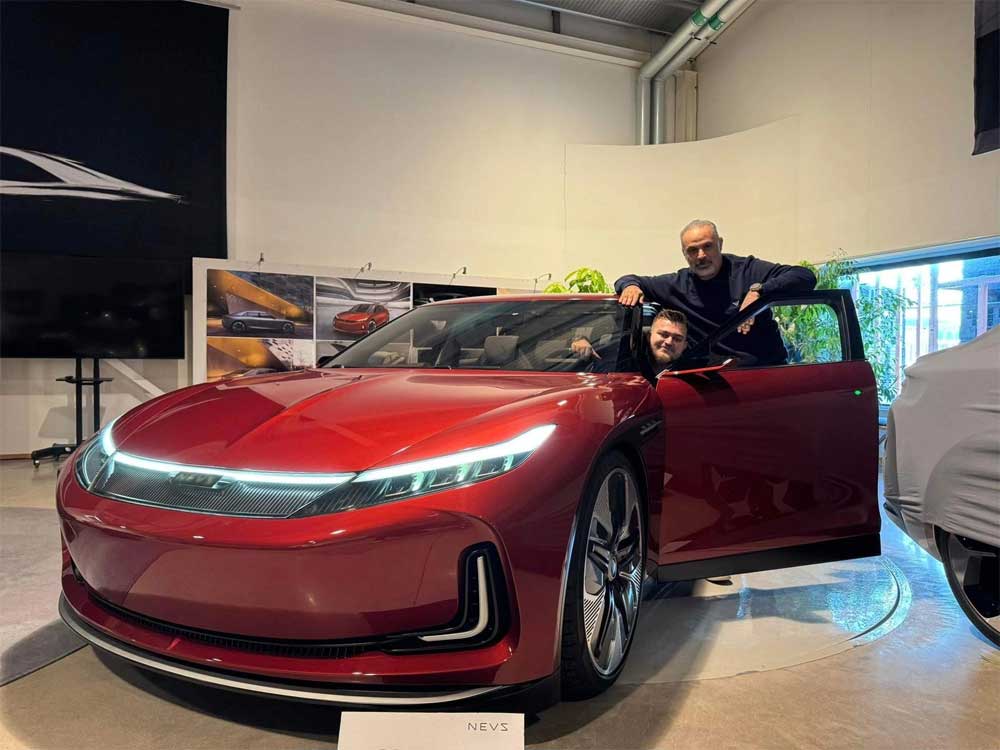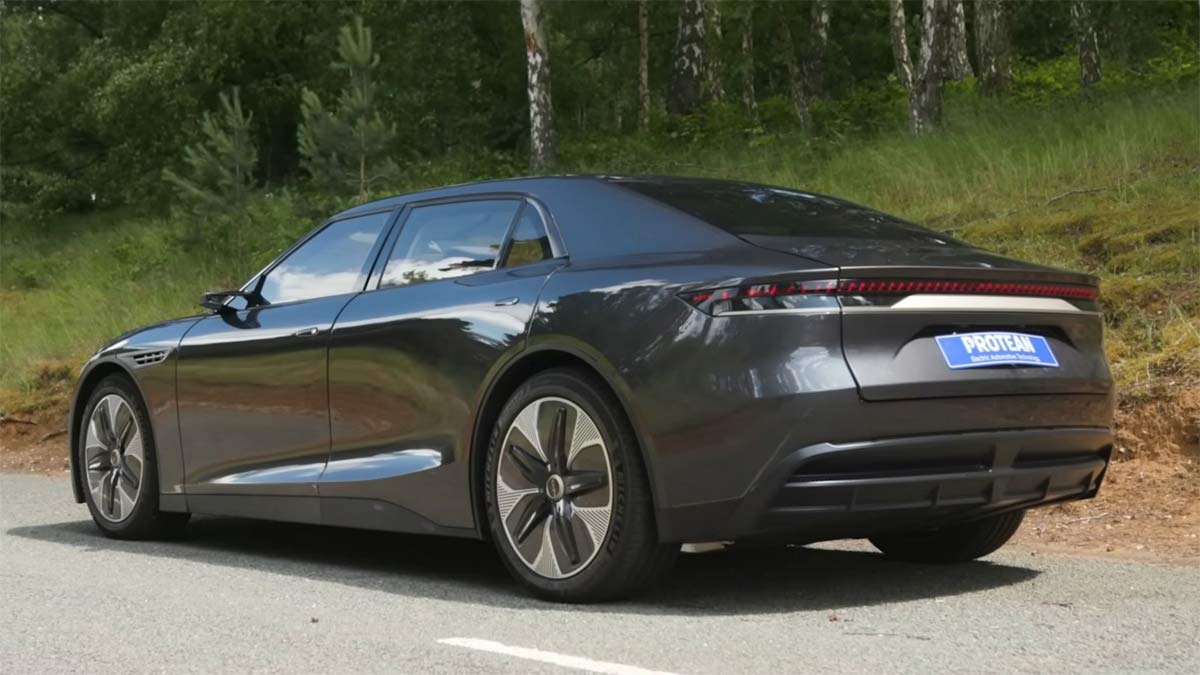In the wake of recent developments surrounding National Electric Vehicle Sweden (NEVS) and its parent company, the Evergrande Group, the automotive industry stands on the brink of a significant transformation.
With Evergrande facing liquidation amid staggering debts, NEVS prepares for a future independent of its Chinese backers, signaling a pivotal moment for the company and its pioneering projects, Emily GT and PONS. This article delves into the implications of these changes and explores the resilience and strategic pivots of companies like NEVS and EV Electra under the leadership of Jihad Mohammad.
Table of Contents
Evergrande’s Downfall: A Ripple Effect
Evergrande, once a titan in the Chinese real estate market, has found itself ensnared in a financial quagmire, with debts amounting to an astonishing $300 billion. This crisis has not only shaken the real estate sector but also cast a shadow over its subsidiary, NEVS, a beacon of innovation in electric vehicles in Trollhättan. The liquidation of Evergrande marks a critical juncture, underscoring the volatile interconnections between global industries and the fragility of corporate giants.

NEVS’s Strategic Foresight: Beyond Evergrande
In anticipation of its parent company’s challenges, NEVS has been proactively exploring alternatives to sustain its operations independently of Evergrande’s financial woes. According to NEVS CEO Nina Selander, the company has spent the last six months devising strategies to ensure its viability and continuity, a testament to its resilience and adaptability in the face of adversity. This preparation positions NEVS to weather the storm and continue its mission in electric vehicle innovation.
Jihad Mohammad’s Vision Amid Uncertainty
Amidst the turmoil, Jihad Mohammad of EV Electra has emerged with a blend of optimism and strategic ambiguity regarding the future of the Emily GT and PONS projects. While initial statements suggested a commitment to manufacturing in Trollhättan, subsequent announcements have hinted at alternative plans, including potential contract manufacturing in Europe or the construction of a new facility adjacent to the existing one. Mohammad’s statements reflect a broader narrative of adaptability and strategic negotiation in a rapidly evolving industry.

The Road Ahead for NEVS and EV Electra
As NEVS braces for life after Evergrande, its engagement with entities like EV Electra and the broader automotive ecosystem becomes increasingly significant. The collaboration or competition between NEVS and EV Electra, especially in securing a manufacturing foothold in Trollhättan, will likely shape the trajectory of both companies and the future of electric vehicles in Sweden and beyond. The unfolding scenario presents both challenges and opportunities for innovation, market expansion, and the redefinition of automotive excellence.

Trollhättan’s Automotive Legacy and Future Prospects
Trollhättan, with its rich automotive heritage, stands at a crossroads. The city’s response to proposals from entrepreneurs like Jihad Mohammad and companies like NEVS will influence not only the local economy but also the global perception of Sweden as a hub for electric vehicle innovation. The potential for a new, modern factory or the revitalization of the old Saab plant underlines the city’s pivotal role in shaping the future of sustainable transportation.
The journey ahead for NEVS, EV Electra, and the city of Trollhättan is fraught with uncertainty but also brimming with potential. As the automotive industry grapples with financial upheavals and the pressing need for sustainable innovation, the strategies adopted by these key players will offer valuable lessons in resilience, adaptation, and visionary leadership.
The legacy of Trollhättan’s automotive industry and the future of electric vehicles hang in the balance, poised for a new chapter of growth and transformation.












I think they need to buy back the tooling from Turkey and China….
Please no electric!!!!
Just bring back Saab 900 turbo
They should go for hydrogen fuel cell.
Full electric is a waste of time, electric cars are good for cities but cities don’t want you driving in cities.
Last thing we need are more electric cars
Well what is the point they wont be saab
Just the usual BS and crap about EV … “the holy grail to climate change” …. yes boosting the need for electricity by 2 .. 3 .. 4 times, all the time that about 65 % of worlds electricity is made of fossil fuel … “BRAVO 👏”
I’ve owned six Saabs, from the 900 through the 9-5 Aero. They’re all fantastic innovative cars. I now drive a Tesla M3P, also fantastic and innovative car. The people writing these comments likely don’t own electric cars. Saab could do pretty well with the Emily GT, currently the best of many promising options of future models in the segment.
Just the usual BS and c… about EV … “the holy grail to climate change” …. yes boosting the need for electricity by 2 .. 3 .. 4 times, all the time that about 65 % of worlds electricity is made of fossil fuel … “BRAVO 👏”
Just bring back Saab 900 turbo
how many years promises only? 12? 13? BSR lets old Saabs live. Started to make an eco friendly cars from old diesel. And this “NEVS”? Bet on bad “EV” card and finally will never happened…
Folks, EVs will never breach 25% of the market. And I mean…NEVER. Range varies too wildly dependent on the weather, they’re heavy, when they tax the piss out of them for all the additional wear (and to catch up on lost gas tax), and when the packs die and you have to spend $20k+ to replace…they’ll get dumped like explosive diarrhea.
EVs failed in the past…and it wasn’t big oil…it was just big inconvenience.
Hydrogen or more stable EV source…then it’ll happen. Tesla is the king of the castle, and megatons of them got bricked in the cold.
That went into hibernation as GM said no in 2023
Electric cars is so last decade. Most manufactures are moving to hydrogen. Electric won’t work